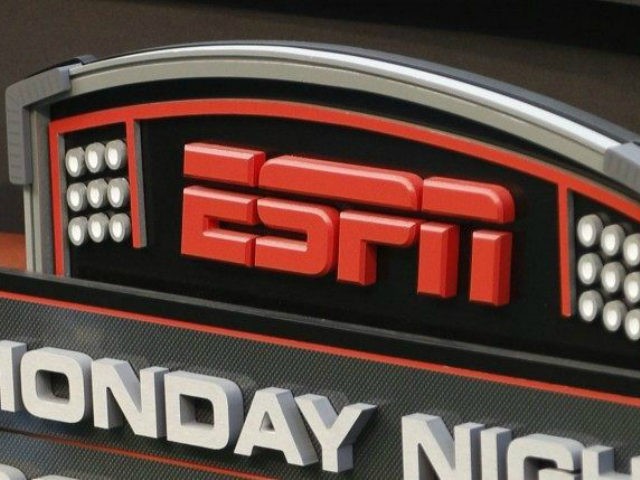A year that saw arguably the five greatest championship game performances of all time should have helped right the ship for ESPN, and at the very least stopped the trend of massive subscriber losses which have plagued the Bristol-based sports giant for the last few years.
Well, that did not happen, and ESPN appears to be a sinking ship, dragging parent company Disney down with it.
Bloomberg reports that ESPN badly hurt Disney’s first quarter sales, falling well short of projections.
According to The Wrap, “Cable networks, particularly ESPN, have been an albatross on Disney’s stock price even as the company’s two other major prongs, movies and theme parks, continue to perform well. As cheaper TV alternatives began to proliferate, ESPN hemorrhaged subscribers during the course of 2016 and is now at less than 88 million, compared with a peak of 100.1 million in 2011. At an estimated $7 per subscriber, that dip has been a substantial hit to Disney, especially considering media networks made up 49 percent of Disney’s profits during fiscal 2016.”
In other words, everyone else at Disney met or exceeded their projected goals, except for ESPN who lost more than twelve million subscribers in just under six years.
But, the problem for ESPN goes deeper than just losing subscribers and money. The Wrap explains, “At the same time, rights fees for the live sports ESPN specializes in broadcasting continue to go up, as there’s plenty of competition for one of the few pieces of programmed television that still delivers monster ratings. ESPN will pay $7.3 billion for content this year – the biggest price tag among all media companies. Operating income at Disney’s cable networks division — primarily ESPN — plunged 11 percent compared with the same time the previous year. Disney attributed that drop entirely to lower ESPN revenue.”
Less cash on hand means less cash to purchase rights to sporting events, which can prove particularly harmful to an entity that considers itself a sports network. Now, Disney and ESPN have laid much of the blame for their subscriber loss at the feet of the cord cutting phenomenon that has impacted all cable providers to some degree. That’s a fair point, but ESPN’s losses have far exceeded the pace and rate of losses among other providers.
ESPN will also cite the fact that they’re rolling out more subscriber-based streaming content that will offset much of the losses they’ve taken on the cable side. Great, but what will ESPN show on those streaming channels? Will they show the real-life equivalent of Jason Bateman’s ESPN “The Ocho?”
I enjoy a good game of dodgeball as much as the next guy, but unless ESPN plans on exclusively featuring the NFL, or high-profile NBA games on their streaming networks, virtually no one will watch. Not to mention, it’s highly unlikely that either the NBA or the NFL would enter into a contract with ESPN which allowed them to only offer their games via stream.
So, what can ESPN do?
In November, ESPN ombudsman Jim Brady wrote that he felt the network had become too liberal, turning off half the country and potentially effecting viewership and subscribership. Sadly, three months after that rare and blinding light of truth and honesty there’s no reason to believe anything has changed regarding the politics of ESPN.
Not when you have hosts like ESPN’s Ryen Rusillo stating, on the air, that he no longer knows what his job is, since everyone around him just wants to bash Trump and talk liberal politics, instead of talking about sports.
Maybe, if ESPN focused more on sports instead of alienating half the country, their business wouldn’t be circling the drain right now. After all, Lady Gaga just did a halftime show in which she decided to not enrage half the country, and got rewarded with an enormous surge in digital music sales.
Imagine that. Don’t insult the country and they’ll consume your product. Who would have thought?
Follow Dylan Gwinn on Twitter: @themightygwinn

COMMENTS
Please let us know if you're having issues with commenting.